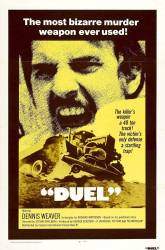
Question: Why did the truck driver want to kill David Mann?
Answer: According to director Steven Spielberg, the trucker was a serial killer, and each of the license plates were trophies from previous victims.
Answer: David pulled ahead of the truck not once but twice. He got to the gas station first, and got served before the trucker. For any normal person this would not be cause to try to murder someone, however the truck driver is an unhinged psychopath who doesn't need much reason to go into an obsessive rage. Add to that the fact that David is driving a much smaller car, and the fact that they're out in the middle of nowhere with nary a cop around, and the truck driver probably saw David as easy prey.
Answer: "It was very common to see semi trucks with a half dozen or so license plates on them, each from a different state." And that's how the psycho trucker got away with it. He could have those 'trophy' plates on the front of the truck in plain sight, and to anyone who saw it, the truck would look like just another big rig with multiple license plates. Nothing out of the ordinary or suspicious about it.
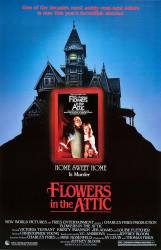
Question: Who laced the cookies that were given to the children with arsenic? It's never shown who applies it, only who takes the cookies to them.
Answer: When the children discover the cookies had been poisoned (revealed by the death of their pet mouse which ate part of one of the cookies), they suspect their grandmother. After all, she was the one who had been cruel to them all along. But eventually, they realise that it was in fact, their mother, Corinne, who was lacing the cookies with poison. She was doing so with the hope that the children would eventually die, seemingly from disease. In doing so, she would secure the family inheritance which was contingent upon her never having had children from her first marriage. They eventually confront their mother on the day of her second wedding, and a struggle ensues which ultimately leads to Corinne falling to her death from a balcony.
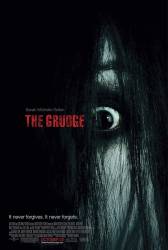
Question: How exactly does the father kill the wife? I noticed when she comes down the stairs she comes out of a bloody bag. So how is she killed?
Answer: Well, in the Japanese original (Ju-On: The Grudge), it shows that Takeo, the father, killed his wife by shoving a knife down her throat or something similar to that. When he was killing her, she tried to scream, except her scream came out all messed up (because the knife hit the vocal chords), which explains the horrible croaking noise. There's no doubt about it that it's the way she was killed in this version.
Answer: Another website states that after pushing her down, Kayako sprained her ankle and crawled down the stairs, only to realise Takeo was slowly following her from behind watching her suffer. He then snapped her neck, but she was still alive and could only make the croaking noise. It is also implied that he stabbed her multiple times afterwards, which could explain the bloody corpse.
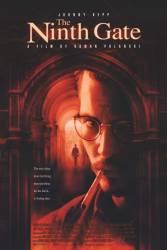
Question: Does "the girl" - as she's been called - have a name? And is she a (or the) devil?
Answer: She was not given a name, neither in the film nor credits. She is simply known as "The Girl". As to precisely who she is, it is deliberately left ambiguous. But the last engraving found by Corso does seem to indicate that she is the Whore of Babylon mentioned in the Book of Revelation.
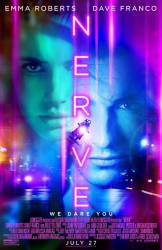
Question: My understanding is that Vee orchestrated the plan for Ty to bring a blank filled gun, but how was the dare revealed to her before being told to shoot her opponent, let alone before given the gun?
Answer: Once she saw the gun and knew how crazy the game was, she formed an idea that someone's would get shot and believed that it would be her.
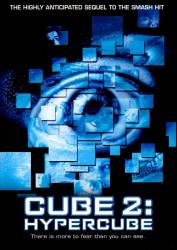
Question: If Sasha really is blind and she is Alex Trusk but she IS a computer hacker.What good is a computer hacker that blind wouldn't she not be able to see the screen or anything of the sort?
Chosen answer: Blind people use computers all the time. There are Braille monitors that interpret the visual images on the screen into Braille. They can also use speech synthesisers to convert the images into audible information.
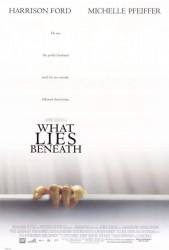
Question: When Norman says the guy "that wrote that book he loves" (Shumway?) congratulated him on Spencer's Theorem, then Claire says "He didn't know your father was dead?" and Norman says "He knew". What does one thing have to do with the other? I've seen this movie at least 20 times and I can't figure out this conversation.
Chosen answer: Spencer's theorem was Norman's father's theorem. Norman wants to be greater than his father was, so to be accidentally complemented on something that his father did would be bad enough. To say that the guy knows that his father is dead is to imply that the guy probably insulted him intentionally.
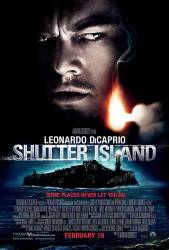
Question: The children in Teddy's hallucinations were bloody but they died by drowning. Is this just an inference to Andrew's guilt that his children's "blood is on his hands" because he didn't seek treatment for Dolores' mental illness? Or is it Scorsese being overly dramatic and adding a lot of blood where it doesn't belong? Also, how exactly did Andrew kill Dolores? Did he use his service revolver, even though we don't hear the shot?
Chosen answer: I think the recurring blood comes from the blood of his wife when he killed her. there was a lot of blood you see, in his psychosis that means a lot and has taken over a large part of his hallucinations, just like Dachau camp. Yes, he did shoot his wife Dolores, in the belly. You can see it in the end of the movie.

Question: Why do they still have gravity when Romilly asks Cooper to turn of the spinning, when they neared the wormhole? The centrifugal force stops, but on the inside there is still gravity.
Chosen answer: They do not still have gravity. Romilly is actually floating, but nothing is ever shown from behind his back, so the floating is gone unnoticed. In fact, during some shots of Romilly, you can see his feet floating behind him.
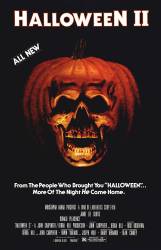
Question: How can Michael recognize Laurie as his younger sister since he wouldn't have seen her since she was only two years old?
Answer: There is a scene where Laurie dreams about meeting Michael as a young teen. It's unknown whether this is an actual memory of real events, but since nothing indicates otherwise, we could assume the he saw her at an older age when she looked closer to her 17-year-old self.
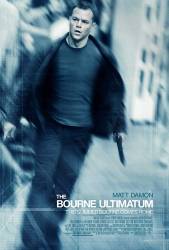
Question: What happened to the previous CIA director in The Bourne Supremacy who was replaced by Erza Kramer in The Bourne Ultimatum?
Chosen answer: The script of The Bourne Supremacy actually calls Martin Marshall the "Deputy Vice-Director" of the CIA, although in the same script and film dialog, Landy refers to him as "Director Marshall". So it appears Kramer is CIA Director in all the Bourne films, but Marshall is either acting Director in Kramer's absence or is just referred to as a Director.
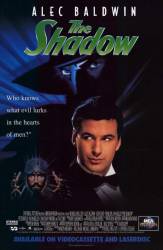
Question: When Lamont is struggling to stop the Phurba from cutting his throat, how did he finally manage to get control over the Phurba and use it to stab Khan?
Answer: Mind control over matter.
Answer: He had never gone up against someone like him. A man who not only knew how to harness his abilities, but had mastered them as well, like young Luke going up against Vader. He finally found the strength and the courage to fight and defeat him.
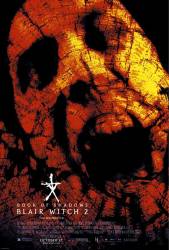
Question: On the DVD (UK, not sure about anywhere else) there is a feature called 'the secret of esrever', which tells you to look for very subliminal hidden images in the film - I have looked so many times and there is still one I can't find - does anyone know where the 'water' one is? The only thing I can see is what looks like an owl's head made out of the trees in the scene where the woman is drowning a baby in the lake. If this is it how does it relate to the film? Also is there a message in the images? There are a few words but I can't make a sentence out of them.
Answer: In the scene where the baby is submerged in the water, watch the lower right-hand side of the screen. You'll see the shadow of a stickman emerge and come higher into the frame.
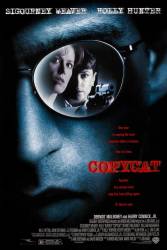
Question: Who is Conrad? Harry Conick, Jr.'s character writes him a letter at the end, and there is a Conrad character listed in the credits, but I haven't been able to find him.
Answer: I thought that it was Peter Kurten (Foley) that broke in and left the book. However if it was Conrad, then he does not appear in the flesh in the film.
You are correct. I just rewatched this tonight on Tubi.
Answer: Conrad is the man that breaks into Helen's flat and leaves the book. Happens just over 1 hour into the film.
Answer: I don't think Conrad appears in the film. Earlier in the movie HC Jr says he has other "disciples"; Conrad seems to be the new recruit to replace the just-killed McNamara character.
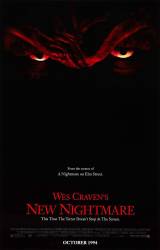
Question: Probably a dumb question, but does Robert Englund really paint pictures for a hobby...or was that simply made up for the film?
Chosen answer: According to his wife, the painting was made specifically for the movie. Robert doesn't paint at all.
Answer: He's a surfer dude, he wanted to be polishing his boards for that scene.
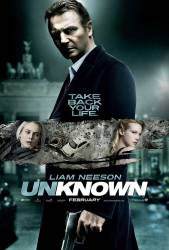
Question: What (if any) is the significance of the "OZ" graffiti that pops up throughout the film? It became quite distracting as I thought it would pay off at the end of the film.
Answer: The 'OZ' sprayer is a very disturbed man who claims to be an artist but the courts think otherwise. You can found his OZ (which he claims to be read OLI!) everywhere in Berlin and Hamburg. It has absolutely nothing to do with the movie but you can't film a wide open scene in Berlin without taping it.
Answer: Mise en scene. OZ / OLI is firstly a name. Asking what or rather who OZ / OLI is, is the point. One of the main questions of the film is what constitutes a person's identity.
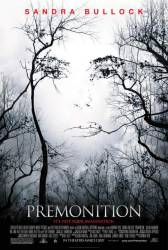
Question: If Sandra is at the scene of the accident, what is the purpose of the police officer showing up at the door to tell her Jim is dead?
Answer: It's fairly obvious that this film's theme is that knowing the future changes it. I.e. knowing there would be an accident, she travelled there and caused an accident.
Answer: Possibly she left the scene before the police arrived, so they did not know she had been there.
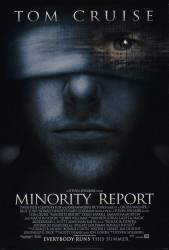
Question: There's a quote that I don't understand: "The fact that you prevented it from happening doesn't change the fact that it was going to happen." I immediately thought, "Yes, it does change the fact that it was going to happen." If Witwer hadn't put his hand there, it would have happened. However, he did, thus "changing the fact that it was going to happen," right? Isn't this the point of the whole movie: determinism is foolish and that different actions produce different consequences?
Answer: No, he didn't change the fact that it was going to happen. He prevented it from happening. But until he stopped it, it was going to happen. And no matter how many times you look back at that sequence, it was going to happen. Up until a point, it was going to happen. It was just prevented.
Answer: The statement involves the idea of arresting people who did not commit the crime yet but are going to. Until the precogs tell someone to change things, the idea is that it will happen. If Anderton had rolled the ball and the other guy was not watching, it was going to fall. The only way to change it would have been for Anderton to say something. Things will happen unless the future is changed. Ultimately the idea is proven sketchy at the end at best.
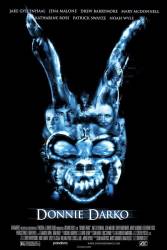

Answer: It's never explained why but, judging from the numerous license plates from other vehicles attached to his truck, the truck driver is a serial killer and was just targeting people at random and decided to make David his next target.
Trucks used to have to be registered in multiple states if they were going to operate in them. It was very common to see semi trucks with a half dozen or so license plates on them, each from a different state.